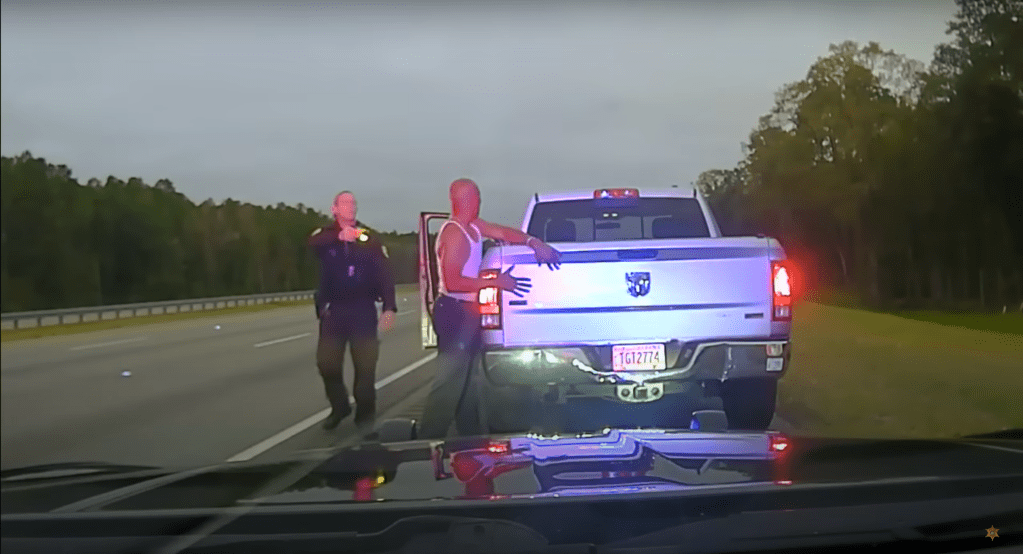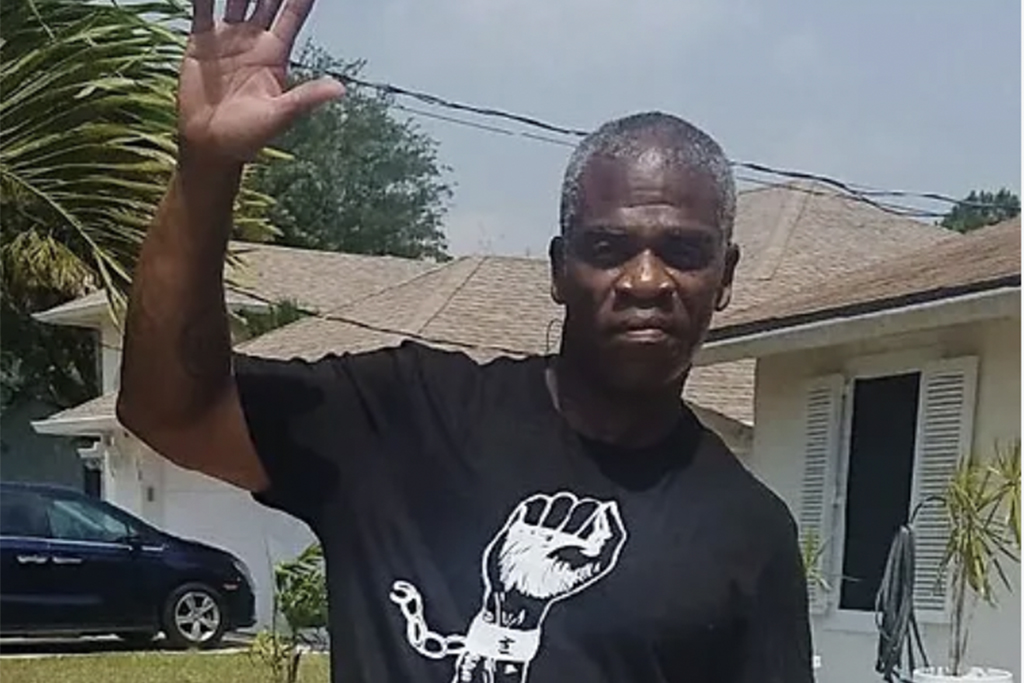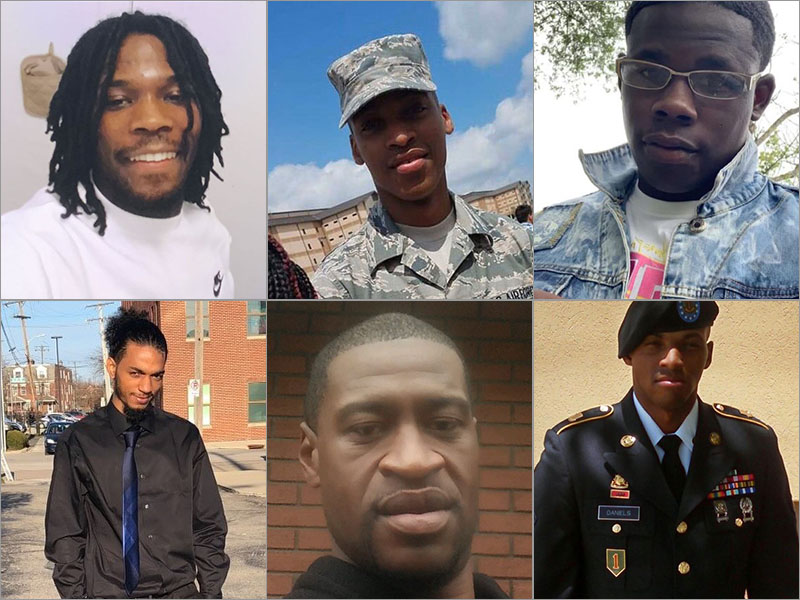Leonard Cure Lawsuit: Camden County Cop To Be Sued, Attys Say
Lawsuit To Target ‘Extremely Aggressive’ Georgia Cop Who Killed Leonard Cure, Exonerated And Unarmed Black Man

Source: Camden County Sheriff’s Office
A pair of civil rights attorneys have signaled their intent to sue a Georgia police officer who shot and killed an unarmed Black man during a traffic stop in October.
Leonard Allan Cure, a 53-year-old who was enjoying freedom after being exonerated in 2020 from a wrongful life sentence for which he served 16 years in a Florida prison, was killed by Camden County Sheriff’s Deputy Buck Aldridge, who has a history of using excessive force during at least one other traffic stop.
Attorneys Ben Crump and Harry Daniels on Monday alerted members of the media that they will be announcing a lawsuit against Aldridge for the shooting that they said resulted in the Georgia Bureau of Investigation’s 80th officer-involved shooting investigation this year.
Cure was shot to death on Oct. 16 by Aldridge after being pulled over and accused of speeding and reckless driving. Video footage released days later showed Aldridge pulling over Cure and immediately ordering him out of the car instead of following the standard procedure of first asking to see the driver’s license, registration and proof of insurance. Cure complied with Aldridge’s orders but began resisting once he was placed under arrest and told that “tickets in the state of Georgia are criminal offenses.”
Police surveillance footage released by the Camden County Sheriff’s Office shows Cure, who was pulled over for speeding and driving recklessly, was met by an aggressive and apparently furious Aldridge, who began shouting at him to “GET OUT” of his car before the deputy was anywhere near it. The video shows that Cure complied until he found out he was being arrested for speeding, which he said in protest should only result in a ticket. After a couple of rounds with a police taser and a physical struggle between the two, Aldridge fatally shot Cure, who had not been reported as being armed at the time.
Notably, no ticket had been issued when Aldridge tased Cure before the two men descended into a physical struggle on the roadside, resulting in the cop firing the fatal shot.

Source: The Innocence Project
Cure’s family said the video footage showed Aldridge failing to control the situation out of apparent anger.
“The officer got out of the car extremely aggressive, yelling and screaming commands, and my brother complied,” Cure’s brother, Michael Cure, said. “He did comply, so after watching the video, I do believe things could have been handled differently, but I also believe the officer got out being extremely aggressive.”
Crump, who is representing Cure’s family, said Aldridge failed to de-escalate matters.
“When you have escalation met with escalation, nothing good comes out of it,” Crump said.
“From what you can see on the video, it doesn’t seem to me that this will be the type of call or the nature of the event that would require for an officer to tase the suspect,” Criminologist Alex del Carmen told News 4. “If the officer has in fact, a history, that he has been using force in the past, and he’s been disciplined in the past, to the extent of being fired, then the police department has a very serious problem in their hands right now.”
Years before killing Cure, Aldridge had been given multiple warnings, particularly about his behavior during traffic stops. An official report suggested he was not “calm, cool, collected” during traffic stops, which seemed to be the case after he pulled over Cure.
Aldridge also in 2017 was fired as a police officer after a traffic stop resulted in him picking up a woman and “throwing her on the ground.”
Broward State Attorney Harold F. Pryor — who worked with advocates to get Cure exonerated from a life sentence in Florida in a wrongful conviction for armed robbery with a firearm and aggravated assault with a firearm in 2003 — said Cure had planned on attending college. Florida Gov. Ron DeSantis earlier this year approved a claim bill that gave Cure more than $800,000 to use toward his education because he was exonerated.
“The Leonard we knew was a smart, funny and kind person,” Pryor said in a statement posted to social media. “After he was freed and exonerated by our office, he visited prosecutors at our office and participated in training to help our staff do their jobs in the fairest and most thorough way possible. He would frequently call to check in on Assistant State Attorney Arielle Demby Berger, the head of the Conviction Review Unit, and offer our team encouragement to continue to do the important work of justice.”
Pryor added: “Leonard was so excited that the Florida Legislature and Gov. Ron DeSantis had recently approved his claims bill. He had been working a job in security, he was hoping to go to college and wanted to work in broadcast radio production, he was buying his first home.”
Cure was freed in 2020.
SEE ALSO:
Ex-Louisiana Cop Gets Light Sentence For Tasing, Beating And Pistol-Whipping ‘Nonviolent’ Black Man
62-Year-Old Black Man Dies In Custody After Telling Atlanta Officer Who Tased Him, ‘I Can’t Breathe’
















